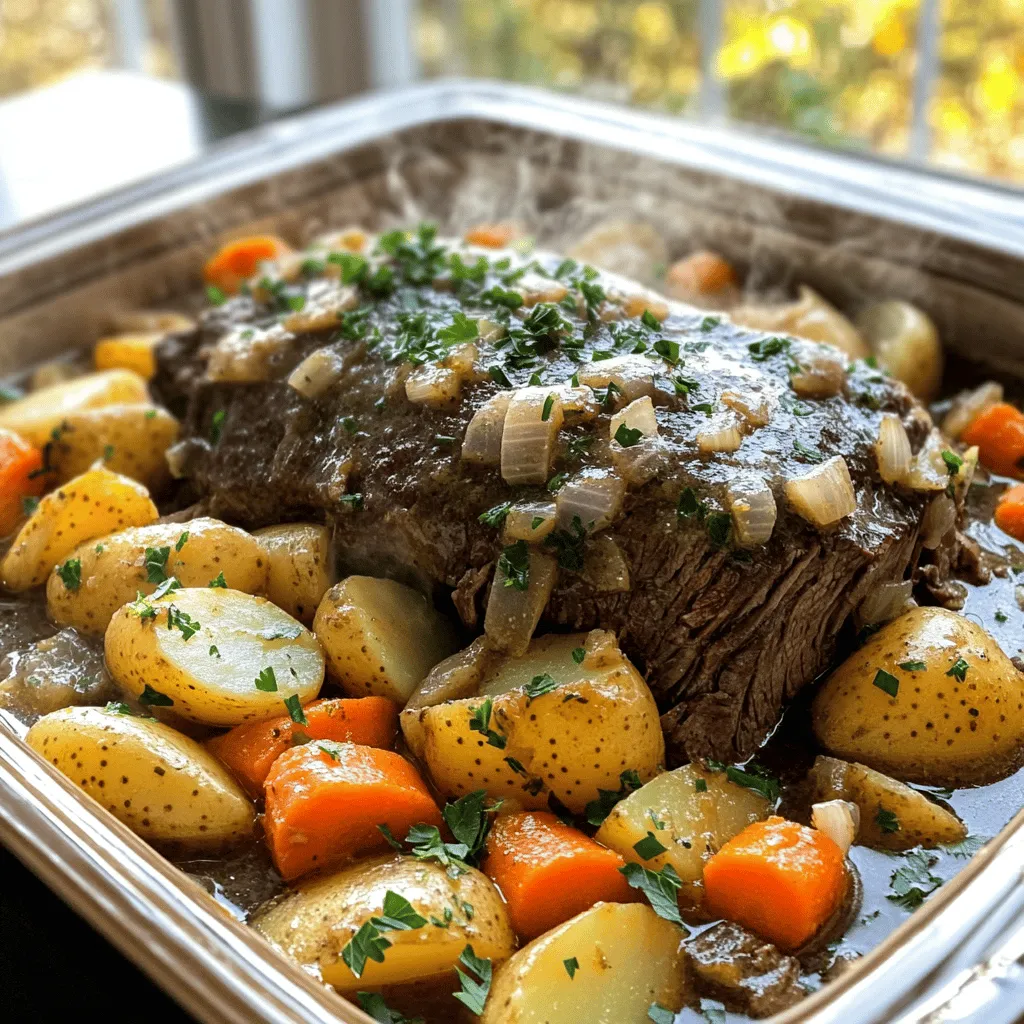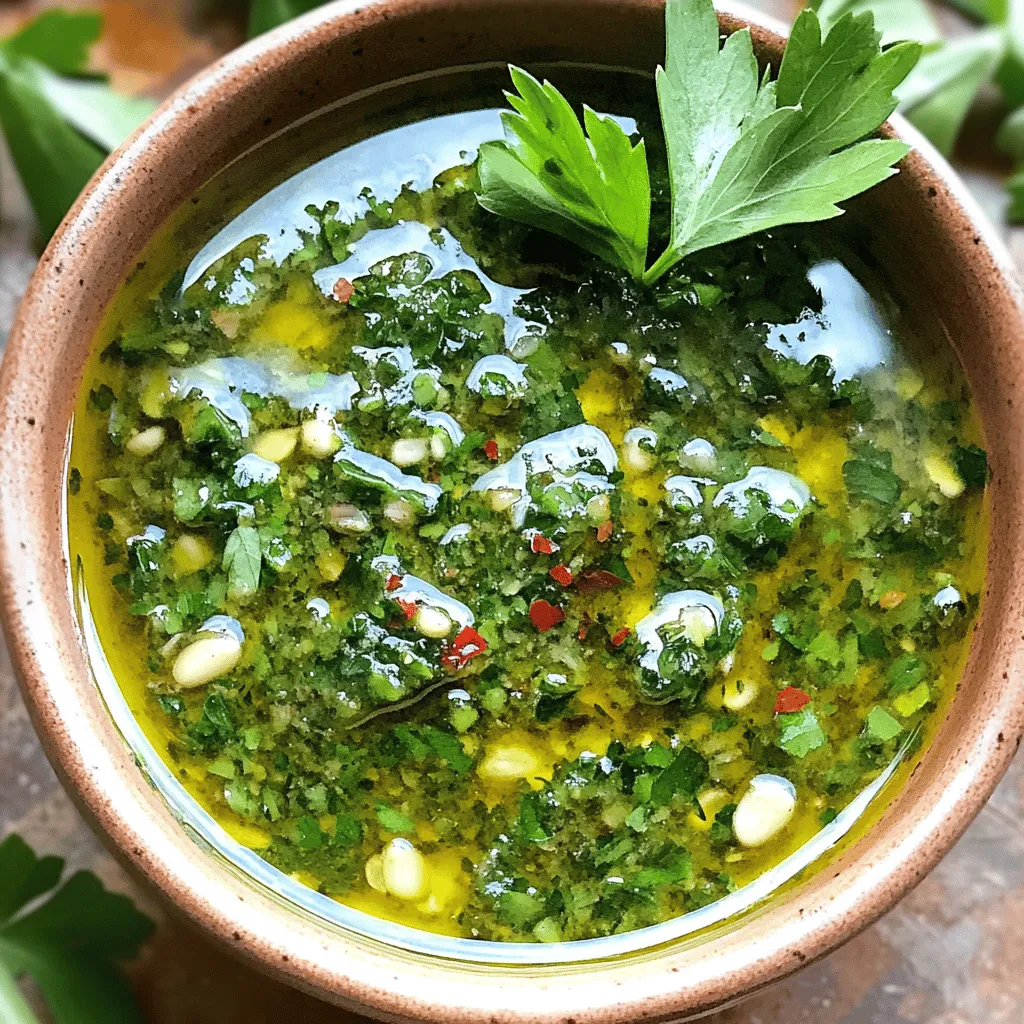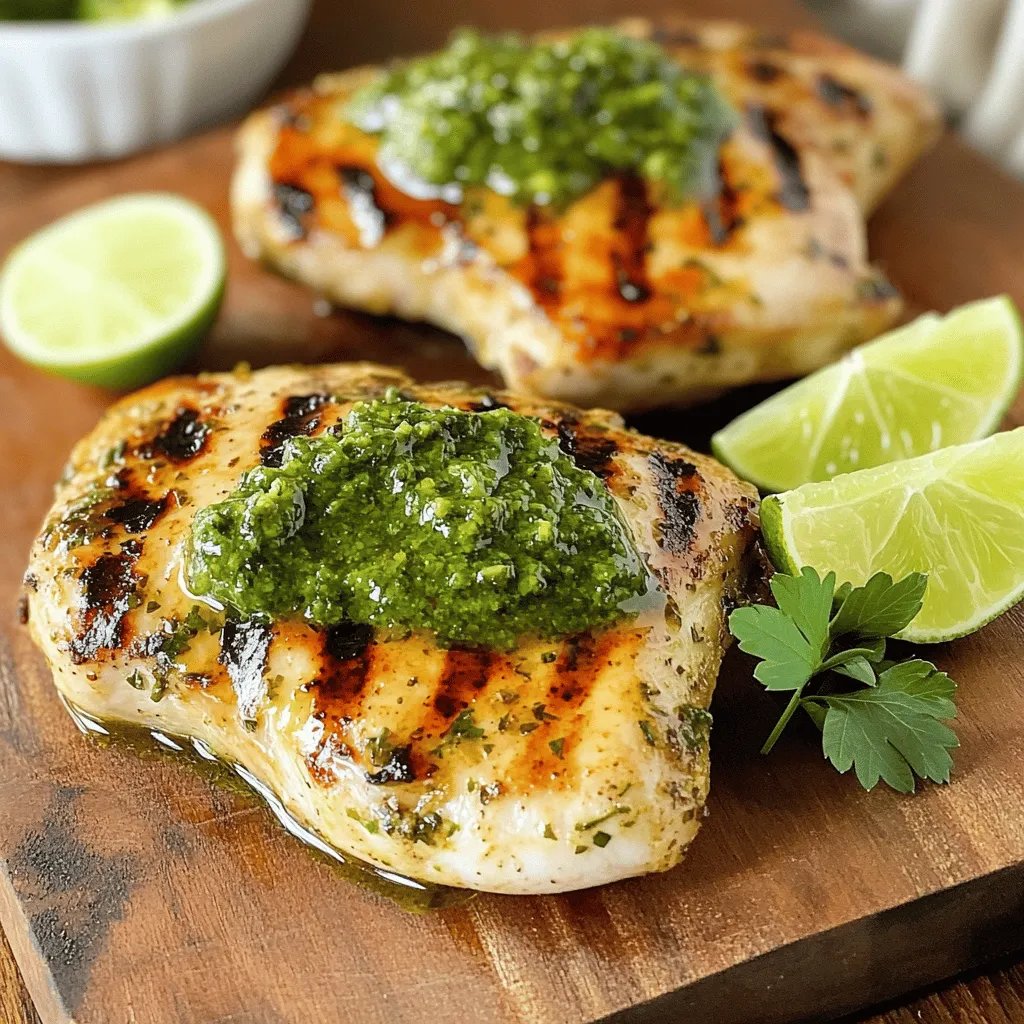Introduction
Roast chicken is a beloved dish in kitchens around the world, embodying comfort and satisfaction. The tantalizing aroma of a perfectly roasted chicken wafting through the house is enough to make anyone’s mouth water. Among the myriad of ways to prepare this classic dish, the Garlic-Herb Butter Roast Chicken stands out, offering an irresistible combination of savory flavors and succulent meat. This recipe elevates the humble roast chicken with the fragrant infusion of fresh herbs and the rich, creamy texture of herb-infused butter, creating a dish that is both simple to prepare and impressive enough for any gathering.
A flavorful roast chicken is an essential component of culinary traditions across cultures. From holiday feasts to cozy family dinners, it serves as a centerpiece that brings people together. The beauty of this Garlic-Herb Butter Roast Chicken is not just in its taste but also in its adaptability to various occasions, whether it be a festive celebration or a weeknight meal. The method of roasting the chicken enhances its natural flavors, while the herbs and garlic create a delightful symphony of aromas that will linger in your kitchen long after the meal is over.
Utilizing fresh ingredients is key to achieving the best results in cooking, and this recipe emphasizes the importance of fresh herbs and garlic. Fresh herbs not only add vibrant flavor but also provide a burst of color and freshness that elevates the dish. Garlic, with its pungent aroma and myriad health benefits, complements the chicken perfectly, infusing it with depth and character. Together, these ingredients transform the ordinary into the extraordinary, making every bite a delight.
Understanding the Ingredients
To create a mouth-watering Garlic-Herb Butter Roast Chicken, it’s essential to understand the key components of the recipe. Each ingredient plays a crucial role in achieving the perfect flavor profile and ensuring the chicken is juicy and tender.
Whole Chicken
The star of this recipe is, of course, the whole chicken. When selecting a chicken, aim for one that weighs between 4 to 5 pounds. This size is ideal for roasting, as it allows for even cooking while still being manageable in terms of preparation and handling. A whole chicken is not only economical but also provides a beautiful presentation that is sure to impress your guests.
Unsalted Butter
Butter is a crucial ingredient in this dish, acting as the medium for the garlic and herbs that will be slathered all over the chicken. Using unsalted butter is recommended, as it allows for better control over the seasoning. Since the chicken will be seasoned with salt and other flavorful components, unsalted butter ensures that the overall taste is balanced and not overly salty. The richness of butter helps to baste the chicken as it roasts, creating a moist and flavorful result.
Garlic
Garlic is a powerhouse ingredient in this recipe, enhancing both flavor and health benefits. Known for its distinctive aroma and taste, garlic adds a warm, savory depth that permeates the chicken when roasted. Additionally, garlic is packed with antioxidants and has numerous health benefits, including anti-inflammatory properties and immune system support. Using fresh garlic cloves is recommended for the best flavor; they can be minced, crushed, or sliced, depending on your preference.
Fresh Herbs: Rosemary, Thyme, and Parsley
The combination of fresh herbs is what makes this roast chicken truly special. Rosemary, thyme, and parsley each bring their unique flavors to the dish. Rosemary offers a pine-like aroma and a robust flavor that pairs beautifully with chicken, while thyme adds a subtle earthiness and warmth. Parsley, with its bright and fresh taste, serves as a finishing touch that elevates the overall profile of the dish. Using fresh herbs instead of dried ones is crucial, as they provide a more vibrant flavor and aroma. When preparing the herb butter, it’s important to finely chop the herbs to ensure even distribution of flavor.
Lemon and Onion
In addition to the herb butter, lemon and onion play significant roles in enhancing the dish’s depth. The acidity of lemon brightens the flavors and helps to tenderize the chicken, while onion adds a natural sweetness and depth to the overall flavor profile. Both ingredients can be stuffed inside the chicken cavity, allowing their flavors to infuse the meat as it cooks.
Carrots and Chicken Broth
Including carrots in the roasting pan not only adds flavor but also enhances the presentation of the dish. Carrots caramelize as they roast, providing a sweet contrast to the savory chicken. Additionally, using chicken broth in the roasting process helps to keep the chicken moist and adds a rich flavor to the drippings, which can be used to create a delicious gravy or sauce.
Preparing the Garlic-Herb Butter
Creating the garlic-herb butter is a straightforward process that significantly impacts the flavor of the roast chicken. Here’s a step-by-step guide to making the perfect garlic-herb butter:
1. Gather Your Ingredients: Start with a stick of unsalted butter, softened to room temperature, which will make it easier to mix in the garlic and herbs. You will need about 4-6 cloves of garlic, minced, alongside the chopped fresh herbs (rosemary, thyme, and parsley).
2. Mix the Butter: In a medium bowl, combine the softened butter with the minced garlic and chopped herbs. Use a fork or a spatula to thoroughly mix the ingredients until they are well incorporated. The goal is to create a smooth, spreadable mixture that is bursting with flavor.
3. Season to Taste: Add a pinch of salt and freshly cracked black pepper to the butter mixture. Taste and adjust the seasoning as needed. Remember, the butter will be applied under the skin of the chicken, so it’s essential to have a balanced flavor profile.
4. Prepare for Application: Once your garlic-herb butter is mixed to perfection, set it aside, allowing the flavors to meld while you prepare the chicken.
Tips on Choosing and Preparing Fresh Herbs
When it comes to choosing fresh herbs, opt for vibrant, green leaves without any wilting or browning. If possible, purchase herbs from a local farmer’s market or grocery store that prioritizes freshness. To prepare the herbs, rinse them under cold water to remove any dirt or impurities, and gently pat them dry with a paper towel. When chopping the herbs, use a sharp knife to ensure clean cuts, which will help release their essential oils and flavors.
Preparing the Chicken for Roasting
Before applying the garlic-herb butter, it’s essential to properly prepare the chicken to achieve that coveted crispy skin and juicy meat.
Drying the Chicken Skin
One of the most critical steps in preparing a roast chicken is ensuring that the skin is dry. Moisture on the skin can prevent it from crisping up during the roasting process. Use paper towels to pat the chicken dry inside and out, removing any excess moisture. This simple step can make a significant difference in the final texture of the roast chicken.
Loosening the Skin
To maximize flavor penetration, you’ll want to loosen the skin of the chicken without tearing it. Gently insert your fingers between the skin and the meat, starting at the neck and working your way down to the thighs. Be careful not to puncture the skin, as you want to create a pocket for the garlic-herb butter to sit in. Loosening the skin allows the butter to infuse the meat beneath, resulting in a richly flavored chicken.
Applying the Herb Butter
Once the skin is loosened, it’s time to apply the garlic-herb butter. Take a generous amount of the butter mixture and carefully spread it under the skin, using your fingers to massage it evenly throughout the chicken. Make sure to get some of the butter into the thighs and breast area, as these are often the driest parts of the chicken. Any remaining butter can be spread over the outside of the chicken for an added layer of flavor and to promote browning during roasting.
Stuffing the Chicken for Enhanced Flavor
An excellent way to enhance the flavor of your roast chicken is by stuffing the cavity with lemon and onion. This not only infuses the chicken with additional flavor but also helps keep it moist during cooking.
Benefits of Stuffing the Cavity
The cavity of the chicken serves as a perfect space for adding aromatic vegetables. By placing lemon wedges and quartered onions inside the cavity, you allow their flavors to permeate the chicken as it roasts. The acidity of the lemon helps to tenderize the meat, while the onion adds sweetness and depth. The result is a roast chicken that is flavorful from the inside out.
Preparing the Lemon and Onion
To prepare the lemon and onion for stuffing, simply cut a lemon into wedges and quarter an onion. Avoid removing the peel from the lemon, as the skin adds an extra layer of flavor. Stuff the cavity of the chicken with the lemon and onion, making sure not to overfill it, as this could prevent even cooking. Tucking the legs with kitchen twine can help ensure that the stuffing stays in place during roasting.
With the garlic-herb butter prepared and the chicken prepped for roasting, you’re well on your way to creating a delicious Garlic-Herb Butter Roast Chicken that will surely impress your family and friends. Stay tuned for the next steps, where we’ll delve into the roasting process and provide tips for achieving the perfect golden-brown skin and juicy meat.

Garlic-Herb Butter Roast Chicken: Mastering the Art of Roast Chicken
How Stuffing Affects the Flavor Profile of the Dish
Stuffing a roast chicken with aromatic ingredients significantly enhances the overall flavor profile of the dish. The herbs, garlic, and citrus notes infuse the meat from the inside out, creating a harmonized taste that is unique to each roast. When the chicken cooks, the stuffing absorbs juices and drippings, which further intensifies the flavors, making every bite a delightful experience. Consider using a mixture of fresh herbs like thyme, rosemary, and parsley, along with a hint of lemon zest or even some chopped apples for a touch of sweetness. Each ingredient you choose not only adds flavor but also contributes to the dish’s aroma, making your kitchen smell heavenly as the chicken roasts.
Arranging the Vegetables for Roasting
Properly arranging vegetables in the roasting pan is crucial for both flavor and presentation. The vegetables act as a natural rack for the chicken, allowing heat to circulate evenly. Layering is key; start with sturdier vegetables like carrots and potatoes at the bottom, as they take longer to cook. The chicken should sit atop these layers, ensuring that the juices drip down, flavoring the vegetables as they roast.
Carrots, in particular, are an excellent choice. Their natural sweetness caramelizes when roasted, complementing the savory notes of the chicken. Moreover, their vibrant orange color adds a beautiful contrast to the dish, making it visually appealing. For variations, consider adding Brussels sprouts, parsnips, or even sweet potatoes. Each of these options will not only enhance the flavor profile but also add different textures and colors to your plate.
Roasting Techniques for Perfect Results
Roasting your chicken at 425°F (220°C) is essential for achieving that ideal golden, crispy skin while keeping the meat moist and tender. The high temperature promotes the Maillard reaction, which creates a beautifully browned exterior. Here’s how to ensure your chicken turns out perfectly every time:
1. Preheating the Oven: Always ensure your oven is preheated before placing the chicken inside. This step is crucial for even cooking.
2. Positioning: Place the chicken in the center of the oven on a roasting rack if you have one; this allows hot air to circulate around the bird evenly.
3. Basting: For an extra layer of flavor and moisture, baste the chicken every 20-30 minutes with the pan juices. This will help achieve that coveted crispy skin while ensuring the meat remains juicy.
4. Cooking Time: As a general rule, roast the chicken for about 20 minutes per pound. However, the best way to ensure doneness is by checking the internal temperature. Insert a meat thermometer into the thickest part of the thigh; it should read 165°F (74°C) for safe consumption.
Letting the Chicken Rest
After removing the chicken from the oven, patience is key. Letting the chicken rest for at least 15-20 minutes before carving helps the juices redistribute throughout the meat. This resting period is crucial; if you slice into the chicken immediately, the juices will run out, resulting in dry meat.
The science behind this is simple: when the chicken cooks, the muscle fibers contract and push the juices toward the center. Resting allows those fibers to relax, drawing the juices back into the meat. The result is a more succulent and tender chicken that is a joy to eat.
Serving Suggestions
When it comes to serving your garlic-herb butter roast chicken, the possibilities are endless. Pair it with classic sides such as creamy mashed potatoes, roasted seasonal vegetables, or a fresh garden salad. For a heartier meal, consider serving it alongside wild rice pilaf or buttery corn on the cob.
Presentation can elevate your dish from simple to spectacular. Carve the chicken and arrange the pieces artfully on a serving platter, garnished with fresh herbs or lemon wedges for added color. Drizzle some of the pan juices over the chicken before serving for extra flavor.
Don’t forget to utilize the pan juices! These flavorful drippings can be transformed into a rich gravy or simply spooned over the chicken and vegetables for a delicious finish. To make a quick gravy, skim excess fat from the drippings, add a splash of chicken broth, and whisk until combined; heat until bubbling, and serve alongside your roast.
Nutritional Information
Understanding the nutritional value of your roast chicken can help you make informed choices. A typical serving of garlic-herb butter roast chicken (approximately 3.5 oz or 100g) contains around:
– Calories: 240
– Protein: 26g
– Total Fat: 14g (with 4g of saturated fat)
– Carbohydrates: 0g
– Fiber: 0g
– Sugar: 0g
The ingredients used in this recipe, like garlic and fresh herbs, not only enhance the flavor but also bring added health benefits. Garlic is known for its immune-boosting properties, while herbs can provide antioxidants. Choosing lean cuts of chicken ensures a high protein content with lower fat levels, making this a nutritious option for any meal.
Conclusion
Mastering the technique of garlic-herb butter roast chicken is not only about following a recipe; it’s about understanding the elements that contribute to a flavorful and visually appealing dish. From the stuffing to the arrangement of vegetables, roasting techniques, and resting time, each step plays a vital role in achieving the perfect roast.
Embrace the joy of preparing and sharing this roast chicken with family and friends. The satisfaction of serving a beautifully cooked meal that you crafted with care is unparalleled. As you gain confidence in this recipe, don’t hesitate to experiment with different herbs, vegetables, and side dishes to make it your own. The beauty of roast chicken lies in its versatility, allowing you to personalize it to suit your taste. Happy cooking!




